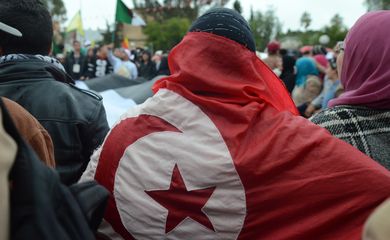Civil society shows government list of proposals




Among the challenges proposed are: strengthening the public media and the public communication system; democratizing communication, ensuring the access to diversified production; improving the distribution of cultural goods to the Brazilian populatio. etc.
After three days of gatherings held in Brasília as part of the 'Dialoga Brasil' Forum (Apr 14, 15, 16), more than 300 representatives from several social organizations, trade union centers and business confederations elaborated a document listing the main challenges proposed for the 2016-2019 Pluriannual Plan (PPA), a plan which sets the government's guidelines and goals for a number of areas.
Among the challenges proposed are: strengthening the public media and the public communication system; democratizing communication, ensuring the access to diversified production; improving the distribution of cultural goods to the Brazilian population; providing the appropriate support for infrastructure in telecommunications; and expanding the reach of radio broadcasting, digital television, and information technology to every municipality in the country;

Miguel Rossetto, secretary-general of the presidency, who also took part in the closing ceremony, believes that leaders' number one commitment is to understand that social participation should be permanent and to learn from the proposals brought forward.
Other goals include: regularizing land and carrying out a land reform; protecting Brazil's Unified Health Care System (or SUS, which provides the population with public health care services free of cost); creating a national system for evaluating public policies and initiatives; and turning Brazil into one of the world's top tourist destinations, using the tourism industry as a strategy for job generation.
According to Gilson Bittencourt, secretary for planning and strategic investments at the Ministry of Planning, major progress was seen this year in the debates, as the local topics that used to pervade the talks gave way to broader, countrywide issues.
“When a debate is conducted alongside members of society, proposals are often local or too specific, and can't be addressed a the PPA. What we debated here was global and nationwide actions. People's discussion has reached a level where they no longer raise specific issues,” Bittencourt noted. In his view, themes that have traditionally drawn little attention in previous forums, like tourism, were given more prominence now, along with education and democracy in communication.
Miguel Rossetto, secretary-general of the presidency, who also took part in the closing ceremony, believes that leaders' number one commitment is to understand that social participation should be permanent and to learn from the proposals brought forward. “We make changes based on the dynamics of society, which has its rights and duties, complains, shouts, makes suggestions, proposals—and it is the government's job to acknowledge that and find ways to attend to those needs, using the resources available and the regulatory power in its hands.”
“Social participation is not an occasional event; it's a way of governing; it's a strategic, political, and democratic concept,” the minister declared, adding that the government's idea is to create an online channel to encourage people to get involved with and watch the progress of the PPA, which has been just given a special period for the discussion of topics with ministers.
Secretary Bittencourt said that one of the greatest challenges named by the attendees is the government's ability to implement as many proposals as possible in their guidelines, so that the PPA actually represents society's needs and urges and makes room for subsequent evaluation and scrutiny.
“There can't be a ministry proposing one thing and civil society interested in another. The thesis is, see whether the leaders are capable of conciliating their action plans and whatever is coming from society,” he said. The secretary also expressed concern with the organizers of the next PPA, saying that the event should be able to provide information for the regular analysis of the initiatives at least once every semester.
Translated by Fabrício Ferreira
Fonte: Civil society shows government list of proposals





